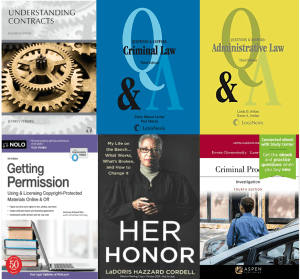This week, ZiefBrief celebrates the UN World Day of Social Justice and reflects on our commitment to social development, well-being, equity, and equality. As part of the USF community, Zief Law Library shares in the university’s and law school’s Jesuit mission towards creating a more just world for everyone, which requires pursuing social justice from multiple angles and perspectives. Here, we take a look at how the law library contributes to social justice work, and invite you to consider how you might pursue social justice causes too.
What is the World Day of Social Justice?
In 2007, the General Assembly of the United Nations adopted Resolution 62/10, declaring February 20th as the UN’s World Day of Social Justice, recognizing, among other things, that “social development and social justice are indispensable for the achievement and maintenance of peace and security within and among nations and that, in turn, social development and social justice cannot be attained in the absence of peace and security or in the absence of respect for all human rights and fundamental freedoms.” Building on the 1995 World Summit for Social Development, which recognized social justice, equity, and equality as major development goals, this resolution ultimately invites the UN Member States to promote concrete national activities and greater international unity towards eradicating poverty, promoting work opportunities and gender equality, and increasing access to well-being and justice.
This year’s theme, “Overcoming Barriers and Unleashing Opportunities for Social Justice” aims at strengthening global solidarity and trust in government, and initiating conversation on “actions needed to strengthen the social contract that has been fractured by rising inequalities, conflicts and weakened institutions that are meant to protect the rights of workers.” It hopes that this dialogue results in greater investment in decent labor opportunities for young people and in green, digital, and care economies. It poses the following questions to consider:
- What are the key bottlenecks and challenges to overcoming rising inequalities, decent work deficits, including lack of access to social protection, digital exclusion and disruption of trade?
- What are the opportunities in the green and digital economy to reduce inequalities and promote social justice, in particular for youth?
- What actions are needed by governments, the UN system, international financial institutions, employers’ and workers’ organizations, civil society and other stakeholders to increase investments for social justice?
Social Justice at USF, USF Law, and Zief Law Library
The USF Community, home to the Institute for Nonviolence and Social Justice and multiple public interest legal opportunities, is no stranger to social justice work. The law school’s clinics, for example, allow students to participate in social justice-related legal work across various practice areas, such as racial justice, immigration, and human rights. While Zief Law Library supports that work by maintaining research resources, the librarians – and indeed many other law librarians – incorporate social justice across many aspects of our work with students, faculty, and the public, whether it’s in the classroom, in the library, or even behind the scenes. Looking toward the year ahead, the Zief librarians and staff already have more exciting social justice-related ideas to put into action, but some highlights from this past year include:
- creating a diversity, equity, and inclusion resource guide for law school faculty and staff;
- incorporating more critical legal research-related discussions into our legal research instructional sessions, reflecting on power dynamics represented in legal systems and research tools and access to justice;
- creating and revising instructional learning materials with accessibility at the forefront;
- participating in creating a harmful language statement for USF Gleeson and Zief libraries to recognize potentially harmful materials and outdated descriptions;
- maintaining knowledge about and promoting access to free and low-cost legal research resources;
- expanding our collections of legal research materials, including social justice-related books, media, and databases; and
- attending law librarian workshops, conferences, and panels where we share ideas and learn from other social justice-focused law librarians.
With all of the opportunities to further social justice through our work in the law library, it’s hard to imagine setting aside only one day for them all. So, while the UN’s World Day of Social Justice may only be just one day out of the year, Zief Law Library hopes you’ll join us in celebrating social justice every day.


